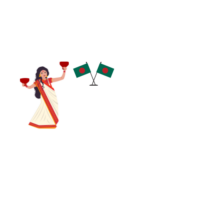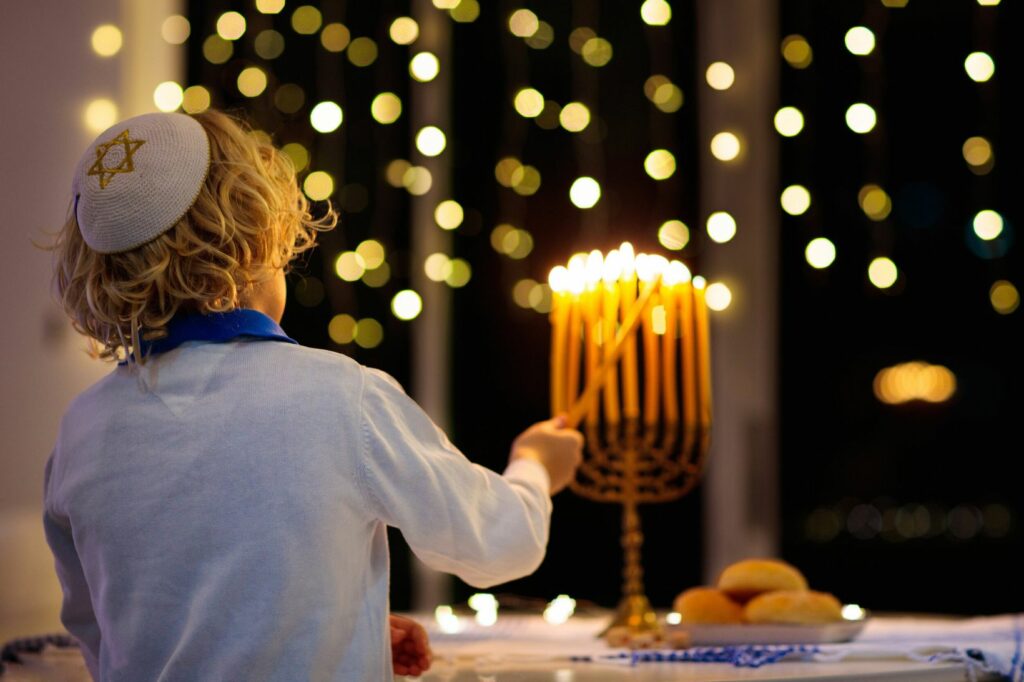Judaism, one of the world’s oldest monotheistic religions, is rich with vibrant festivals and celebrations that weave together faith, history, and community. These events, deeply rooted in tradition, offer a unique glimpse into the Jewish way of life and their enduring connection to heritage. Each festival tells a story, commemorating significant historical events and spiritual milestones that have shaped Jewish identity over millennia.
From the solemnity of Yom Kippur to the joyous festivities of Hanukkah, Jewish celebrations are diverse in their expressions and meanings. They provide opportunities for reflection, gratitude, and togetherness, often marked by specific rituals, prayers, and foods. As these festivals unfold throughout the year, they offer a rhythm to Jewish life, inviting both participants and observers to explore the profound and timeless values that underpin this ancient faith.
Judaism Festivals and Celebrations
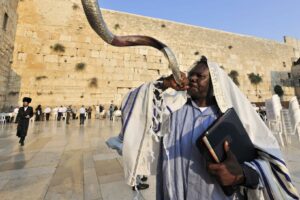 Judaism features a wide array of festivals and celebrations, each commemorating key moments in Jewish history and religious practice. These events encompass both solemn observances and joyful gatherings, reinforcing the cultural and spiritual fabric of the Jewish community.
Judaism features a wide array of festivals and celebrations, each commemorating key moments in Jewish history and religious practice. These events encompass both solemn observances and joyful gatherings, reinforcing the cultural and spiritual fabric of the Jewish community.
Sabbath (Shabbat): Occurring weekly, Shabbat is a day of rest and spiritual renewal, beginning Friday evening and ending Saturday night. It involves prayer, family meals, and refraining from work, reflecting the Creation narrative.
Passover (Pesach): Celebrated in spring, Passover commemorates the Exodus from Egypt. The Seder meal, with symbolic foods such as unleavened bread, recounts the story of liberation.
Sukkot: This autumn festival lasts seven days, celebrating the harvest and recalling the Israelites’ journey in the desert. Temporary huts, or sukkahs, are constructed as part of the observance.
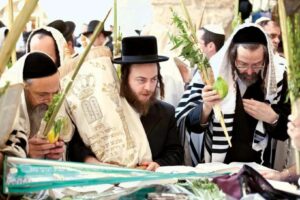 Yom Kippur: Known as the Day of Atonement, Yom Kippur is the holiest day in Judaism. Fasting, prayer, and repentance are central, offering a time for introspection and spiritual cleansing.
Yom Kippur: Known as the Day of Atonement, Yom Kippur is the holiest day in Judaism. Fasting, prayer, and repentance are central, offering a time for introspection and spiritual cleansing.
Hanukkah: Also called the Festival of Lights, Hanukkah lasts eight days, celebrating the rededication of the Second Temple. Lighting the menorah and enjoying treats like latkes mark the festivities.
These festivals emphasize different facets of Jewish identity, from historical remembrance to religious duties. Participants of all ages engage in rituals and customs, fostering unity and a deeper connection to their faith.
Major Festivals in Judaism
Judaism features significant festivals celebrated with diverse traditions and deep historical significance. These major festivals highlight the spiritual and cultural aspects of Jewish life.
Passover (Pesach)
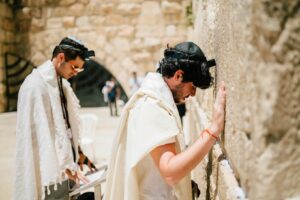 Passover marks the liberation of the Israelites from Egyptian slavery. Occurring in spring, it lasts eight days, beginning with the Seder meal, where participants retell the Exodus story. Observers eat unleavened bread, or matzah, symbolizing the haste of escape and drink four cups of wine, representing redemption. Families gather to honor freedom and commitment to faith.
Passover marks the liberation of the Israelites from Egyptian slavery. Occurring in spring, it lasts eight days, beginning with the Seder meal, where participants retell the Exodus story. Observers eat unleavened bread, or matzah, symbolizing the haste of escape and drink four cups of wine, representing redemption. Families gather to honor freedom and commitment to faith.
Rosh Hashanah
Rosh Hashanah signifies the Jewish New Year. It initiates the ten Days of Awe, a period of reflection and repentance, culminating in Yom Kippur. The shofar, a ram’s horn, is blown to awaken spiritual consciousness and herald renewal. Special prayers and foods such as apples dipped in honey symbolize wishes for a sweet new year. Community and introspection are central themes.
Yom Kippur
Yom Kippur, the Day of Atonement, is Judaism’s holiest day. It focuses on confession and atonement for sins. Observers fast and engage in intensive prayer and synagogue services. The Kol Nidre prayer, which annuls vows, opens the occasion. Observance involves seeking forgiveness from both God and fellow people, emphasizing purification and spiritual renewal.
Hanukkah
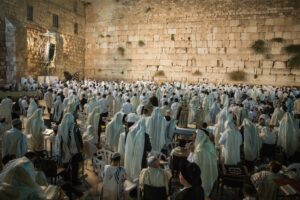 Hanukkah, the Festival of Lights, celebrates the Maccabees’ victory over Syrian oppression and the miracle of burning oil. Observed over eight nights, families light the menorah to commemorate the rededication of the Second Temple. Traditional foods include latkes and sufganiyot, symbolizing the miracle’s oil. Festivities emphasize resilience and faith’s enduring power.
Hanukkah, the Festival of Lights, celebrates the Maccabees’ victory over Syrian oppression and the miracle of burning oil. Observed over eight nights, families light the menorah to commemorate the rededication of the Second Temple. Traditional foods include latkes and sufganiyot, symbolizing the miracle’s oil. Festivities emphasize resilience and faith’s enduring power.
Cultural Significance
Jewish festivals and celebrations are integral to expressing the rich tapestry of faith, history, and community within Judaism. These events, whether solemn or joyous, provide opportunities for reflection, gratitude, and unity, connecting participants to their heritage and enduring values. By observing unique rituals, prayers, and dietary laws, individuals deepen their spiritual experiences and strengthen communal bonds. These celebrations not only highlight the resilience and power of faith but also foster a sense of belonging and identity. As they align with seasonal cycles and cultural narratives, Jewish festivals enrich both personal and communal lives, promoting understanding and appreciation across broader society.
